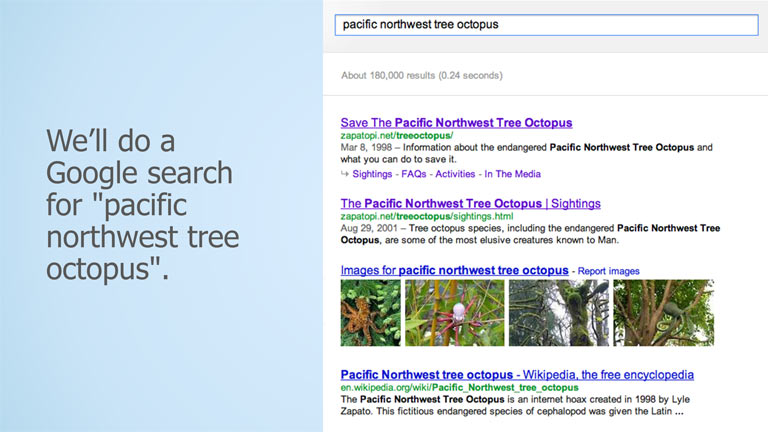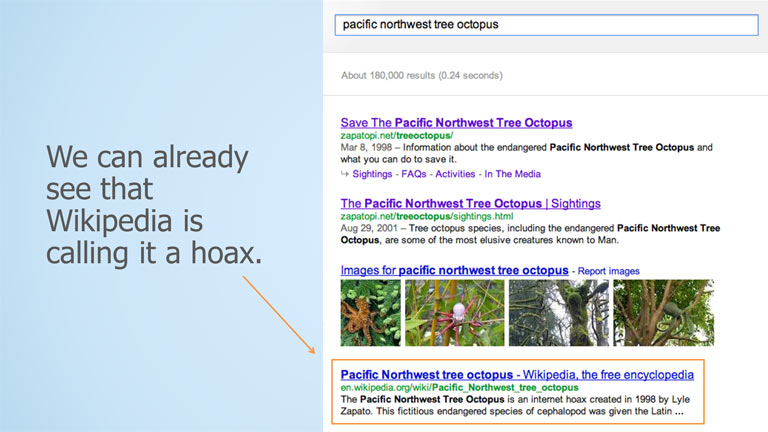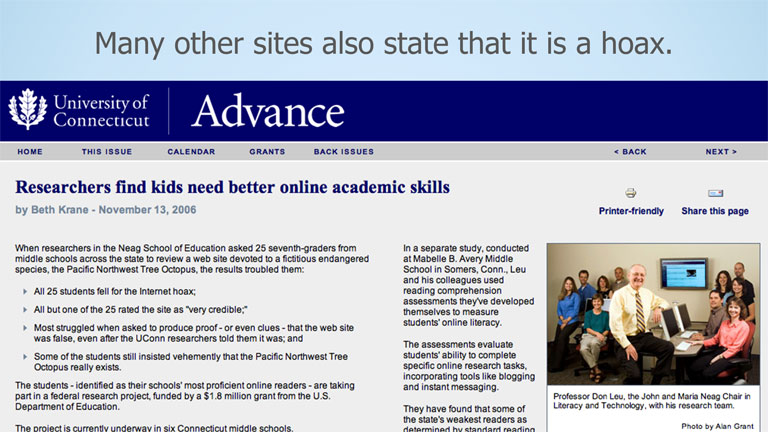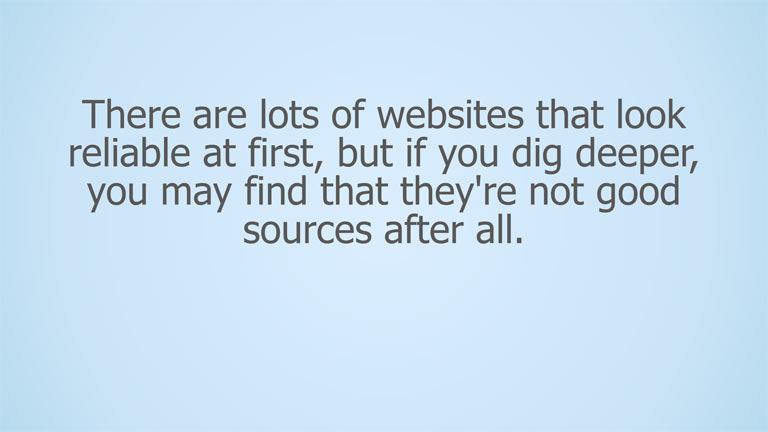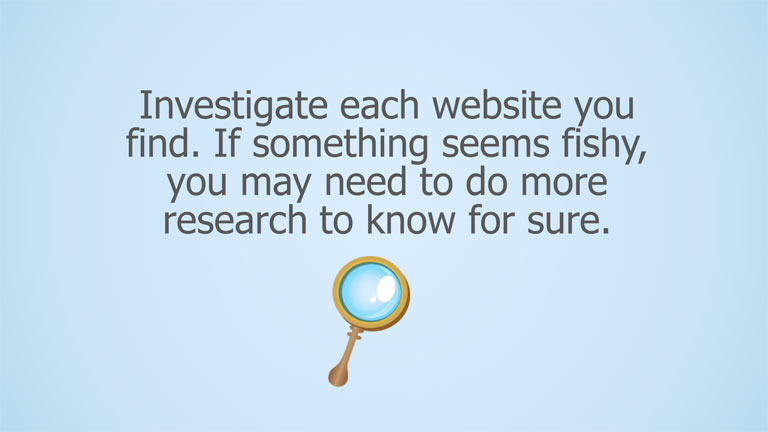Search Better
Judging Online Information
Practice evaluating websites
Evaluating websites takes practice. We've already looked at some basic techniques you can use, but these techniques may not work on every website you find. You'll often need to use your critical thinking skills to make a good judgment.
Click the arrows in the slideshow below to see an example of how you can judge a website.
Verifying information with Snopes
Let's say your friend sends you an email containing an amazing "fact" or story. Even if you trust your friend, it doesn't mean the email is true. Chain emails can quickly spread around the world, and they often contain misinformation, hoaxes, political propaganda, and worse. Instead of simply forwarding the email to your other friends, take a moment to verify that the information is true.
One of the easiest ways to do this is to go to snopes.com and search for the story. Snopes is a well-known and trusted source for verifying Internet rumors. A typical Snopes entry will tell you whether the information is true or false, and it will also tell you where the story originated.
 A Snopes entry
A Snopes entryGo to dhmo.org to help determine whether the information is reliable.
- What is the purpose of the site?
- Is dihydrogen monoxide a real substance? Do you think it should be banned?
- Can you find other websites that support the claims made by dhmo.org?






















